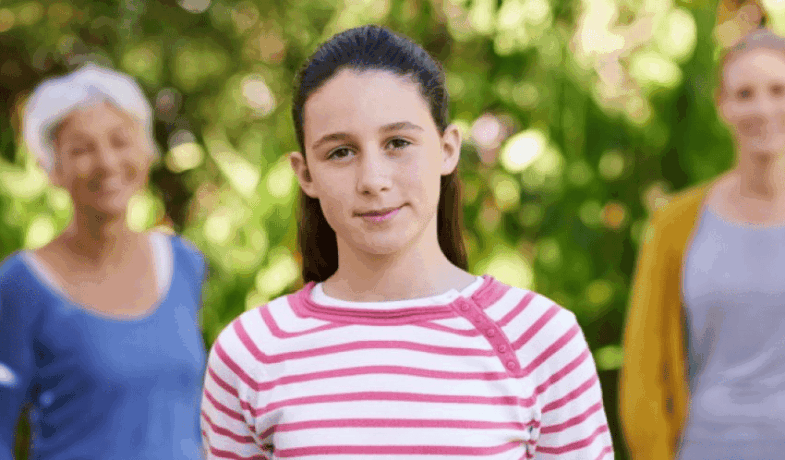Supporting Foster Youth Aging Out of the System

According to the National Foster Youth Institute, each year more than 23,000 children age out of foster care in the United States. For many youth, this transition marks the beginning of significant challenges rather than newfound independence, with 20 percent of foster youth aging out of the system becoming homeless almost immediately. These statistics highlight a critical issue, calling for attention and action from parents, educators, and community advocates.
This blog explores what is aging out of foster care, the challenges faced by vulnerable young adults, and how foster care organizations like The Up Center are stepping up to provide vital support.
What Does It Mean to Age Out of Foster Care?
When children placed in foster care reach a certain age, which is 18 in most states, it means they are no longer eligible to remain in the foster care system and must live independently. This is referred to as “aging out” of foster care.

What Age Do You Age Out of Foster Care in Virginia?
Virginia allows foster youth to remain in a foster care program until the age of 18. However, through the Virginia Department of Social Service’s Fostering Futures program, young adults between the ages of 18 and 21 are eligible for extended foster care services, maintaining access to critical resources and support while developing stability.
Challenges Faced by Youth Aging Out of Foster Care
Youth aging out of foster care face a unique set of challenges, including:
- Housing Instability: Housing is one of the most pressing concerns. Without family to fall back on, many young adults face the risk of immediate homelessness.
- Financial Barriers: Without adequate financial skills or support, youth often struggle to manage basic expenses such as rent, groceries, and transportation.
- Educational Gaps: Many foster youth lag behind their peers academically, making it harder to pursue higher education or secure stable employment.
- Limited Emotional Support: A lack of connection with family or mentors leaves many youth without guidance during critical decision-making periods.
- Mental Health Struggles: Experiencing trauma during childhood and the additional pressure of transitioning out of the system often compound issues like anxiety, depression, or PTSD.
What The Up Center is Doing
Foster care organizations like The Up Center are pivotal in guiding foster youth as they transition into adulthood. The Up Center offers a range of initiatives specifically designed to help foster youth aging out of foster care:
Mentorship
Mentorship can make a world of difference to a young adult facing life’s uncertainties. Through our Team Up program, the Up Center connects foster youth with dedicated mentors who provide emotional support, practical advice, and encouragement during the transition to adulthood.
Educational Assistance
The organization supports continuing education by providing access to scholarships, tutoring, and other educational resources. These tools empower foster youth to pursue higher education or vocational training, setting a foundation for future success.
Housing Support
The Up Center connects youth aging out of foster care with vital housing resources, ensuring young adults have safe, stable accommodations as they transition to independence and helping to prevent homelessness.
Mental Health Support
Addressing the mental health needs of transitioning youth is paramount. The Up Center offers counseling and emotional support services, empowering foster youth to heal from past trauma and develop resilience.
How To Help Youth Aging Out of Foster Care
Supporting youth aging out of foster care programs requires a collective effort:
Volunteer Opportunities
Contribute your time as a mentor or tutor. Consider offering your expertise by teaching youth how to budget, build a resume, or cook nutritious meals.
Donations and Sponsorships
Your financial contributions can directly support foster care programs, ensuring youth receive food, housing, and educational opportunities. Alternatively, you can sponsor a young adult in need or donate essentials like clothing, backpacks, and toiletries to help them during this critical transition.
Advocacy and Awareness
Spreading awareness is a simple yet powerful way to create change. Share information about obstacles like being unhoused and mental health challenges that youth aging out of foster care face. Educate others about the importance of initiatives like The Up Center’s foster care and adoption programs or legislative changes that could provide further support.
Encourage local businesses and schools to get involved or partner with foster care organizations to expand resources for transitioning youth.
Together, we can ensure that every foster youth has the opportunities they need to thrive.
Frequently Asked Questions
Aging out of foster care refers to the moment when a youth reaches the age (commonly 18) at which they are no longer eligible to remain in the foster system. Youth transitioning from foster care must then live independently, often losing access to supports that were once provided through the system.
When aging out of the foster care system, the first step is to connect with transition services at organizations like The Up Center. They can help you get stable housing, arrange mentoring, connect you to programs for youth aging out of foster care, and begin planning for education or work while still receiving support until your exit age.
The Up Center assists youth aging out with vital housing resources, often linking them to safe transitional housing programs and support that aim to prevent youth aging out of foster care homelessness.
Through Up Center’s transition services you can access educational assistance such as scholarships, tutoring, and referrals to programs, helping youth transitioning out pursue higher education or vocational training.
The Up Center provides trauma-informed mental health services— including outpatient counseling and support tailored to the needs of youth aging out of foster care— to help you process trauma, manage anxiety, depression, and build resilience.
To support youth aging out, you can join mentoring programs for youth aging out of foster care via The Up Center’s Team Up program, where adult volunteers provide consistent guidance, emotional support and practical advice to foster youth.
Donations that support youth transitioning out— such as funds for housing, aged out of foster care programs, educational supplies, clothing, backpacks, and hygiene kits— are most valuable. These donations directly help young people avoid crisis during or after aging out.